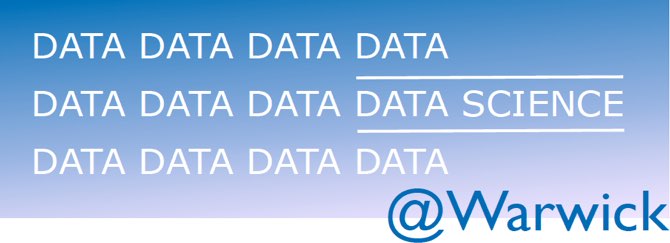Data Science

Data Science
Underpinnings and practice of data science
Two courses representing statistics and computer science in perfect synergy:
- three-year BSc in Data Science (Hons)
- four-year integrated masters MSci in Data Science (Hons)
The courses are organised jointly by the Department of Statistics and the Department of Computer Science.
Data Science concept
Our three-year BSc in Data Science (DatSci) and four-year MSci in Data Science (MDatSci) are Single Honours courses specifically designed for individuals keen to be exposed to the sophisticated theory and methods required for addressing modern data-analytic challenges. They equip you with the knowledge, skills, and attitude required by emerging challenges in the information age. The courses are organised jointly by the Department of Statistics and the Department of Computer Science.Specific aspects of DatSci/MDatSci
Undergraduate Prospectus
- DatSciLink opens in a new window / (BSc, Discover Uni)Link opens in a new window
- MDatSciLink opens in a new window / (MSc, Discover Uni)Link opens in a new window
Related degree courses

Admissions
Application should be made to to either DatSci (7G73) or MDatSci (G304) but not both. Transfers between these two courses is straightforward during the first two years at university (details under Course structure). Transfers between all our courses - DatSci, MDatSci, MathStat, MMathStat, MORSE and MMORSE - are usually straightforward for offer-holders and even beyond; see FAQs for more details. We therefore recommend applying to just one of our courses. Overseas students need to make changes to their visa when changing their course, even within the same department - see International Student Immigration Service. For EU students such considerations may become relevant in the future, too. For more information see under Admissions on our Undergraduate pages.

DatSci or MDatSci?
DatSci and MDatSci are the same during the first two years, making it easy to reconsider your preference. Differences become apparent in the final years. In particular, the fourth year of the MDatSci course offers a supervised masters-level dissertation and the possibility to specialize in areas such as advanced statistical learning and big data, high-performance computing, algorithmic game theory, and computational biology and statistical genetics.Actuarial Exemptions
Exemptions from the professional actuarial examinations are not given automatically. The actuarial profession only awards exemptions if a student has achieved a satisfactory overall performance as well as a satisfactory performance in the relevant University courses. See our dedicated page, Actuarial Exemptions, for more information.


